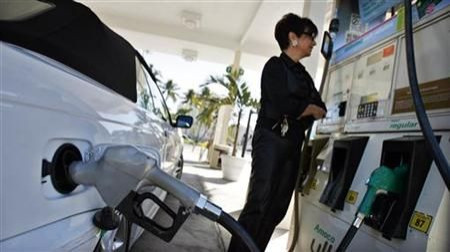Ethanol In Gasoline Potentially Harmful To Millions Of Engines, Says Report

A new blend of ethanol in gasoline could cause billions of dollars' worth of in damages to millions of engines across the country, said a report released by the Coordinating Research Council on Wednesday.
Earlier in 2011, the EPA approved E15, a blend of 15 percent ethanol and 85 percent gasoline, for use in motor vehicles from 2001 to present models. Last month, the EPA approved the first applications for registering ethanol for use in making E15.
The move is designed to cut back on carbon emissions from burning gasoline and help cut the cost to consumers at the pump, but certain engines are not optimally designed to handle E15, and will hurt consumers by damaging their engines, said the CRC, a non-profit organization comprising automobile and oil companies that conducts tests for consumers.
According to the CRC's report, which tested engines built between 2001 to 2009, cars that were released earlier in the past decade are not as fit to burn E15 as later models.
Out of 28 engines from eight different vehicle types tested, 12 experienced mechanical failures.The study found some engines burning E15 suffered damage to valves and experienced leaks. In all, two popular engine types used in millions of cars were proven to be ill suited to burn E15, said the CRC report.
Oil and automobile lobbies, including the American Petroleum Institute and Global Automakers, took the report's release to critique the EPA's approval of E15, and called it premature and irresponsible.
We can build the cars for the fuels, but the EPA made this retroactive to 2001 and that is the problem, said Mike Stanton, the president and CEO of Global Automakers, an auto lobby.
Costs for repairs from damage caused by E15, said the lobby, could run as high as $4,000 to replace cylinder heads.
Our goal is to ensure that new alternative fuels are not placed into retail until it has been proven they are safe and do not cause harm to vehicles, consumers, or the environment, Stanton said. The EPA should have waited until all the studies on the potential impacts of E15 on the current fleet were completed.
Stanton said the ethanol changes the gasoline's combustion properties, making it potentially harmful to cars and light trucks.
Jack Gerrard, president and CEO of the API said the use of E15 could end up working against the biofuels industry.
Federal law requires blending of increasing amounts of biofuels in gasoline, and most of the gasoline now sold in America has ethanol in it, Gerrard said. Yet, if E15 is introduced and vehicle problems develop, public support for E15 and the federal renewable fuels program could erode.
© Copyright IBTimes 2024. All rights reserved.





















